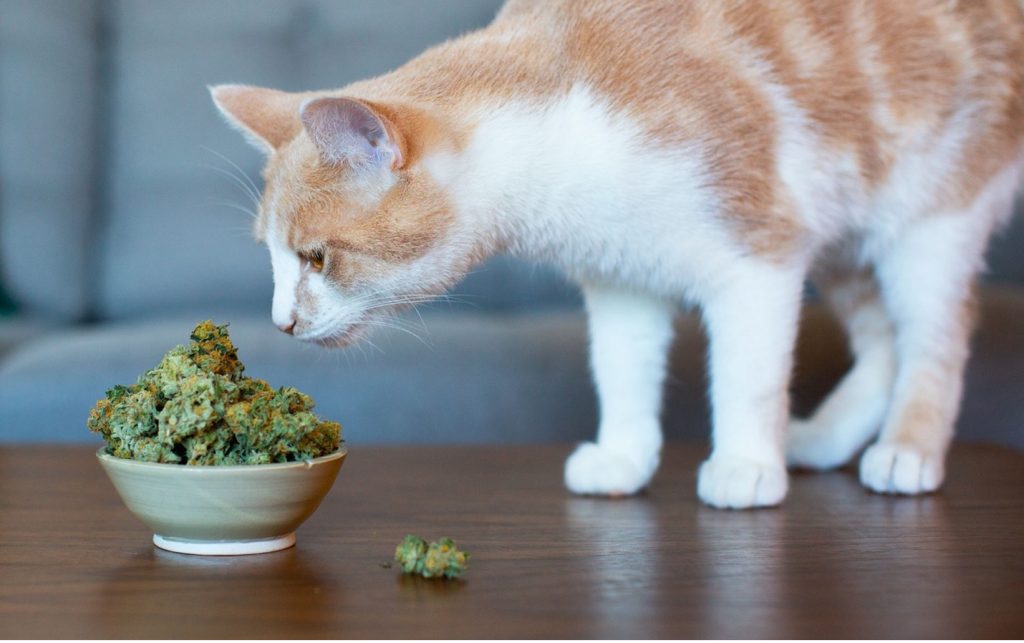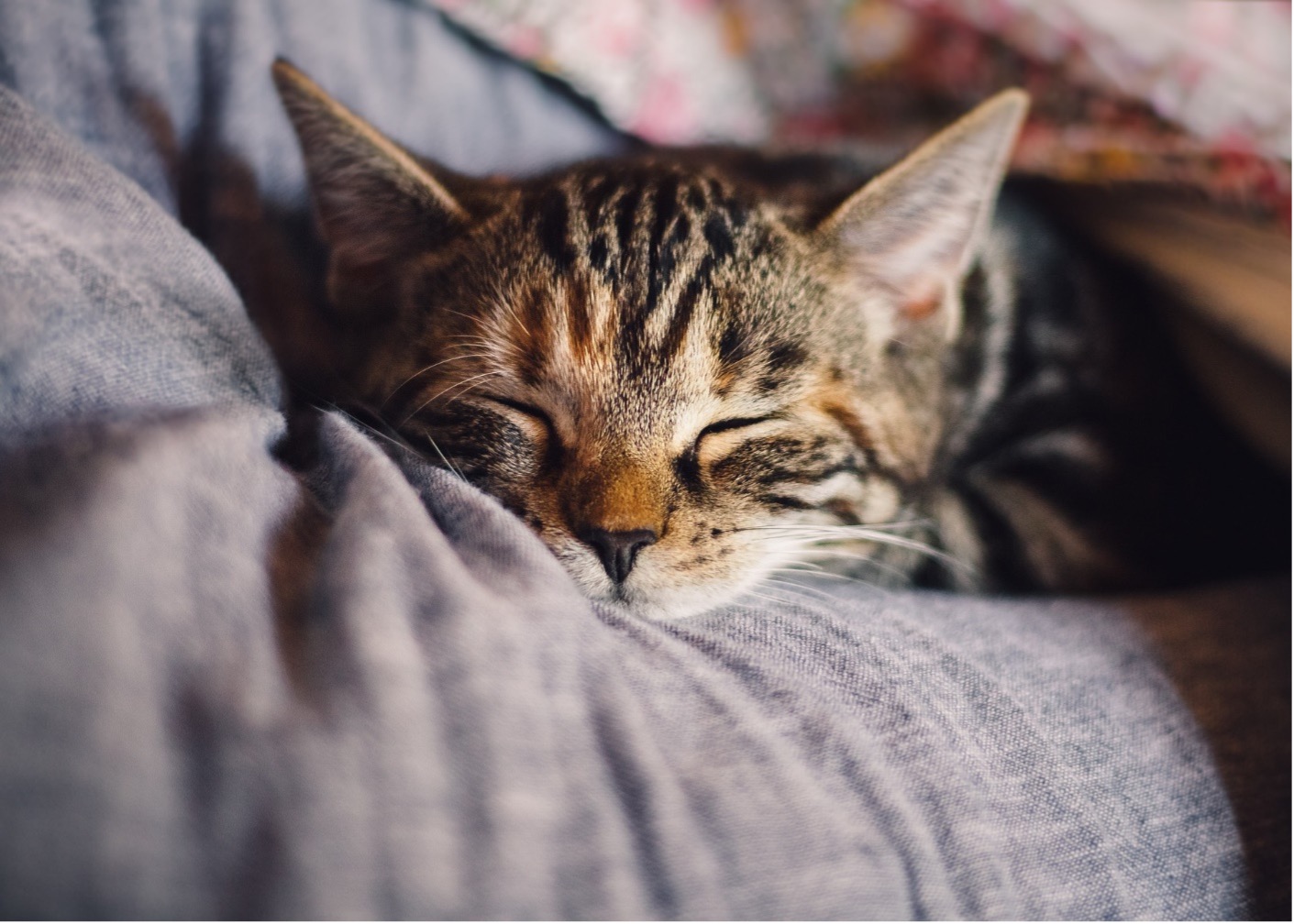Has your feline lost weight all of sudden? Does it refuse to even smell the food in its bowl? Given the fondness of cats for food, it’s rather surprising if your companion has a poor appetite. A lack of appetite, accompanied by weight loss, vomiting, and overall weakness might be an indicator of kidney disease.
Kidneys are of vital importance for the well-being of felines, performing multiple crucial functions such as toxin removal, acid balance maintenance, production of hormones and red blood cells, etc. Besides medications, many pet owners use CBD oil to treat the condition. There is a vast array of CBD products online, like the holistapet cat products, in the form of tinctures, capsules, treats, and calming chews.
Learn more about renal failure in cats and the role of CBD oil in its treatment.
Causes
Kidney disease is common in felines, affecting almost thirty percent of middle-aged and senior cats. It refers to the improper function or the failure of these organs, which happens either suddenly or progressively. Your beloved cat might suffer from two forms of kidney disease; acute renal failure or chronic kidney failure.
The former happens all of a sudden, in the course of several days, during which renal function is suddenly lost. Acute renal failure is mainly triggered by an infection or poisoning, resulting in reversible or permanent damage.
The latter develops gradually over a longer period of a couple of months or years, mainly in older felines. The causes of chronic kidney disease (CKD) are various, ranging from infections to tumors. This type of disease is usually diagnosed in the later stages due to the absence of symptoms in the early phases. In the inceptive stages of CKD, the undamaged areas of the organs work harder to eliminate all toxins from the blood until they shrink and fail.
Moreover, the causes of kidney disease in felines are numerous, often involving contact with a poisonous substance. Whenever cats get in contact with poisonous household plants, certain medications like aspirin, or antifreeze, there are high chances of developing acute renal failure. Read here about some common plants poisonous to cats.

In addition, certain infections might lead to acute renal failure by causing severe inflammation to these organs. Also, kidney stones are a common culprit, causing blockages either in the ureter or the kidneys. Ureter blockages are particularly dangerous due to the inability of the urine to pass freely. Unless treated on time, these organs can swell to a point of causing death.
CKD, on the other hand, is generally caused by less severe infections and blockages, reducing the function of these organs over time. Additionally, it might be triggered by some forms of cancer or thyroid gland issues.
Common symptoms
The signs of kidney disease in felines are usually mild, which makes it challenging for pet parents to notice them. The majority of symptoms are induced because of the increased amount of toxins in the blood or the struggles of the body to get used to the presence of the disease. Most felines suffering from renal failure experience weight loss and poor appetite.
Furthermore, these creatures also experience an increase in thirst and urination. Due to the accumulation of toxins in their blood, felines are subjected to nausea and vomiting. The omnipresent feeling of nausea makes cats exhausted and incredibly lethargic. Also, pet parents may notice halitosis (bad breath) when coming near their companions.
Due to the vital role of kidneys in the body of felines, renal issues might trigger a series of severe health complications. For instance, since these organs are responsible for regulating blood pressure, it’s common for some cats to experience hypertension when their function is reduced. Follow this link, https://pets.webmd.com/cats/kidney-failure-uremia-symptoms-cats, for a better insight into the symptoms of renal failure in felines.
Given kidneys are crucial in the production of red blood cells, their inability to perform this function might result in anemia. Because of the high levels of acids in the blood, felines are also at risk of experiencing acidosis.
The role of CBD
Kidney disease in cats is usually treated with medications and changes in the diet of pets, in some cases even surgeries. Nevertheless, in the event of CKD, there’s no cure for the condition. Hence, the focus of the treatment is placed on alleviating the symptoms and improving the everyday life of cats.
Apart from medications, CBD oil works wonders in relieving the symptoms of renal disease. For instance, this remedy uses its antiemetic properties in the fight with nausea and vomiting, thus reducing the overall weakness in cats. Cannabidiol also promotes a healthy appetite by encouraging the secretion of ghrelin, the hormone whose role is to stimulate hunger. As a result, your cat won’t be at risk of experiencing sudden weight loss.
Another way in which CBD oil assists felines in coping with kidney disease is by maintaining proper body balance. Since cannabidiol has a major influence on the endocannabinoid system, it enhances its activity and promotes homeostasis.
CBD oil is directly related to the levels of anandamide, known as a brain lipid. This natural endocannabinoid is vital in regulating pain, promoting digestive health, stimulating appetite, boosting energy levels, etc. By increasing the levels of anandamide, cannabidiol prevents your pet from experiencing discomfort on a basis.
Final thoughts
CBD provides effective treatment of CKB.
Your feline deserves the best!



 Bitcoin
Bitcoin  Ethereum
Ethereum  Tether
Tether  XRP
XRP  Solana
Solana  USDC
USDC  TRON
TRON  Cardano
Cardano  Lido Staked Ether
Lido Staked Ether  Avalanche
Avalanche  Toncoin
Toncoin